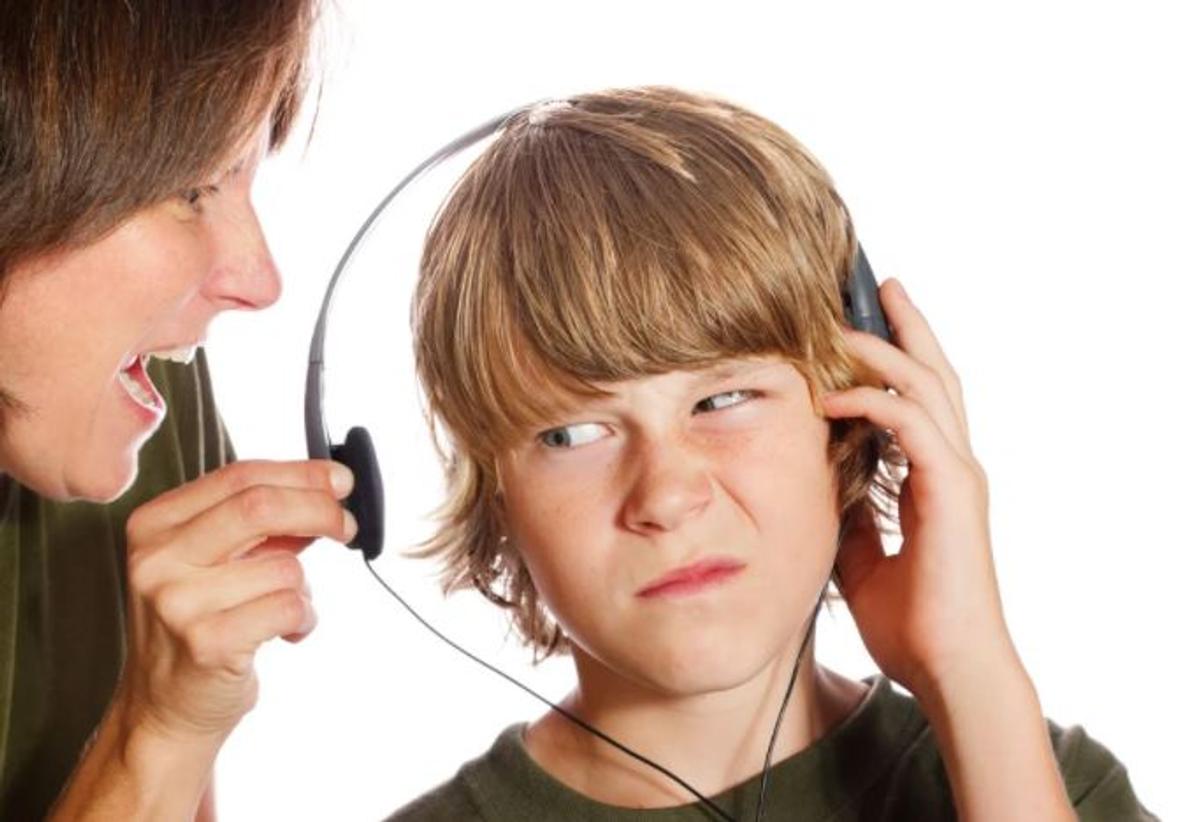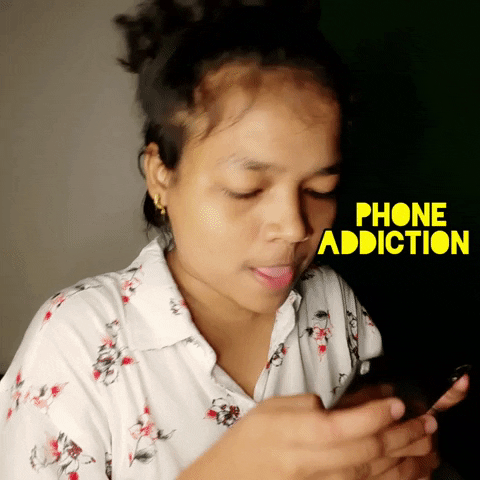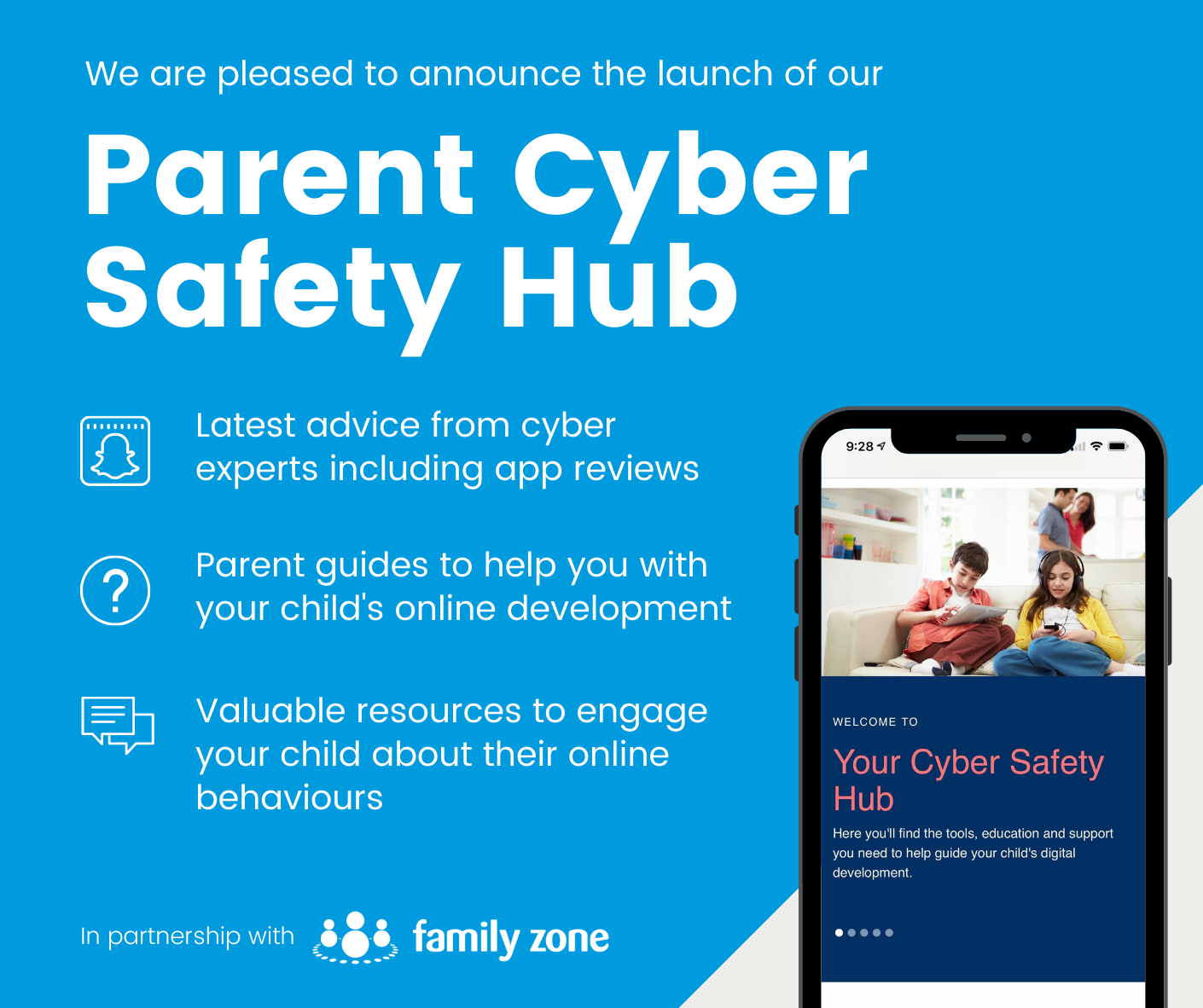Cyber Safety

Worried about their screen-time? Here's the four things NOT to say
The way we talk to our kids about their online habits can help or hinder in the quest for digital wellbeing.
Raising kids in today’s digital world can be a minefield for parents. On the one hand, you understand their love for technology - you probably share it, at least to some degree.
But you also worry that their devices may be dominating their lives. That the crucial balance between online and “real life” may be tipping in the wrong direction.
Criticism and judgment are a natural first reaction to such worries. But - and this is an especially big “but” for older kids and teens - the evidence shows that judge-y words and phrases only serve to heighten conflict and sow confusion. They certainly do nothing to address the problem at hand.
And make no mistake, the words we use matter, says educational psychologist Richard Culatta, CEO of the International Society for Technology in Education. “The way we talk to our kids about using technology can have a huge impact on their ability to become smart and well-rounded adults,” he says.
After years researching how to manage kids’ screen time, Culatta has identified some of the key ways successful parents help their kids find balance. And one of his fascinating findings is all about the phrases effective digital parents avoid.
"The way we talk to our kids about using technology can have a huge impact on their ability to become smart and well-rounded adults"
If any of them sounds familiar to you - don’t worry. We have probably all used one or more of these at some point. (Maybe even this morning?!) There’s no need to beat yourself up. Instead, understand why they are best left unsaid - and think about what you can substitute instead.
Here goes:
“You’re addicted to your phone!”
Is there a digital parent alive who hasn’t said these words to a child whose head is once again buried in a screen? So what’s wrong with stating what seems like an obvious truth? Well, for one thing, it’s probably inaccurate. Most kids aren’t addicted to the device itself, but to an app or game or site that tends to such them in.
But using an addiction analogy is just plain unhelpful. It suggests there’s something terribly wrong with your CHILD - and further that he or she is helpless to change. And that is not a helpful message in any sense.
Culatta suggests reframing the statement to express what your real concern is. “Is the problem that your kid isn’t participating in physical-world activities that you think are important?” he says. If so, “reframe with a compelling reason to do something else” such as:
- “It doesn’t seem like you’ve gotten any exercise yet today.”
- “I noticed you haven’t spent any time with your family since you’ve gotten home from school; let’s do that for a bit so we can balance out how you spend your day.”
“You’ve been playing that game for too long.”
Hmmm. Too long? How long is a piece of string, as the saying goes? Unless you’ve set a clear limit on gaming time, this statement is really just an expression of your own discomfort.
If, however, “you feel the game has less value than other digital activities, then call that out,” suggests Culatta. Instead, try saying something like:
- “It seems like this game is getting more of your attention than it deserves, given the fact that it’s mostly based on repetition and luck.” (This could spark off a valuable conversation …)
- “What other activities do you want to do with the time you spend on your phone today?”
“Stop sitting around on the computer all day.”
This one is both vague and hostile. Is there something wrong with “sitting around”? What if they were reading instead? Would that be a problem?
Ask yourself what is actually bothering you about your child’s screen-time. Do you feel they need to make more time for physical activity? Is it time to get out and go for a bike ride or jump on the trampoline?
Try to be specific about the behaviour you’d like to see, rather than vague (but judgmental) about the behaviour you don’t want to see.
“You need to interact with real people”
Here’s the problem: To your child, the online world - and the people she’s interacting with there - is every bit as “real” as the offline world. And let’s be honest: she’s right. If what you mean is you’d like to see her spending more time with her friends in-person and face-to-face, fair enough.
But it’s insulting to your child to refer to her online relationships as somehow made-up - as if they don’t “count.”
Ask yourself, advises Culatta, what exactly feels out of balance to you. And then try to convey that accurately to your child, using statements like:
- “Your family wants a chance to spend some time with you as well.”
- “It’s good to have some in-person interactions with your friends, too.”
Statements like these could lead to a deeper conversation about finding balance - and that’s the way to make real progress managing their screen-time.
Reference: https://www.familyzone.com/anz/families/blog/four-things-not-to-say-about-screen-time
Check out our Cyber Safety Hub
We are delighted to introduce you to a new resource made available to you through our partnership with Family Zone - our new school Cyber Safety Hub.
As you may already be aware, our partnership provides your family with access to the Family Zone tools to use at home with your children if you wish. The purpose of the Cyber Safety Hub is to complement those tools with practical guidance and information to further support you in engaging with your children in their digital development. These tools and resources also allow the school and parent body to work together on creating a holistic approach to guiding each student's online journey.
You can access the Cyber Safety Hub using the link below:
https://johnxxiii.cybersafetyhub.com.au/
About the Parent Cyber Safety Hub
The Cyber Safety Hub includes resources to help your family better understand the different Family Zone tools available to you and how to use them, plus access to regular cyber safety events to help you stay informed about the latest digital trends.
Also, the Cyber Safety Hub provides expert advice from leading cyber experts, ySafe, on the most pertinent issues and frequently asked questions around platforms like TikTok, Fortnite, Instagram, and more. There are app reviews with age and safety recommendations, along with a range of guides to help ensure healthy boundaries around screen-time & gaming, plus step-by-step instructions for using parental controls and filtering out inappropriate content.
We are very excited to be able to offer you this level of expertise and support. We look forward to working closely with you as we develop the cyber safety conversation within our school community.



